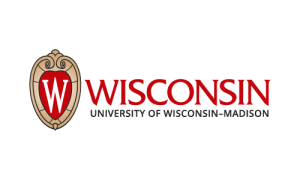UNIVERSITY of WISCONSIN–MADISON: UW System leaders, Chancellor Blank visit UW–Madison COVID-19 vaccine site
Since Jan. 5, UW–Madison has administered nearly 10,500 COVID-19 vaccine doses to its community and is preparing to significantly scale up operations as additional supply becomes available.
That’s the message University Health Services shared with Chancellor Rebecca Blank, UW System interim President Tommy Thompson and Board of Regents President Andrew S. Petersen during a tour of the vaccine clinic at the Nicholas Recreation Center on Tuesday, March 23.
“We feel really fortunate to have access to this space, and to be able to provide COVID-19 vaccines to our students and employees,” said Associate Vice Chancellor and Executive Director of University Health Services Jake Baggott. “We look forward to supplies increasing so we can get more of our community on their way to full protection against the disease.”
Blank was accompanied on the brief facility tour by Thompson, Petersen, Director of UW–Madison Recreation and Wellbeing Aaron Hobson and other representatives of UW System and UHS, including site supervisor, Lyndsey Miskoski and interim medical director, Patrick Kelly.
“It gives me hope to see our students, staff and faculty here today playing their part to end the pandemic,” Blank said. “We are all looking forward to being back in person again and this is how we get there.”
The Nick first opened its doors on the UW–Madison campus in late September 2020 and immediately dedicated space to flu vaccine clinics. In February, says Hobson, RecWell was thrilled to offer the expansive site to UHS for COVID-19 vaccinations.
The number of people in the UW–Madison community who have reported receiving at least one dose of the vaccine, whether on campus or off, now exceeds 10,000.
As more people become fully vaccinated — that’s two weeks following the second of a two-dose vaccine like Pfizer or Moderna, or two weeks after a one-dose vaccine like Johnson & Johnson/Janssen — they can gain an exemption through the Safer Badgers app from campus surveillance testing.
This spring, UW–Madison has required most undergraduate students to undergo routine testing at least twice each week, whether or not they come to campus, and all employees and graduate and professional students have been required to test at least once in the eight days prior to accessing campus buildings. The university has reported more than half a million tests since fall 2020.
Throughout UW System, campuses offered hundreds of thousands of free COVID-19 tests when cases were at their highest, to help control the spread of the virus.
“We are proud of our UW System campuses, which have stepped up and are playing such important roles in addressing and putting an end to the pandemic,” said Petersen. “We are all looking forward to the fall semester, which already looks a little brighter.”
Campuses such as UW-Oshkosh, UW-Milwaukee and UW-Green Bay have also opened up community vaccination centers, and UW System nursing and pharmacy students have volunteered their time to provide shots to people in need.
“There’s a reason Wisconsin is outperforming the nation on vaccine distribution,” said Thompson. “That’s because we have our best and brightest on our campuses, including our health professional students, out here working hard to beat COVID-19.”
At the Nick, UW–Madison student vaccinator Rylie Wilker talked to Thompson and Blank about the complexities of attending nursing school during a pandemic. Administering vaccines, she said, “makes me feel a lot more comfortable being in the clinic.”
And the students and employees on site receiving vaccines Tuesday were grateful for their chance to get a shot.
“It was pretty painless and a smooth process,” said Drae Rogers, a staff member in geoscience. “I am getting vaccinated to protect my family and friends, and to be able to go to work and not get someone sick.”
All Wisconsinites who are able should take their shot when it’s offered, said Thompson (though vaccination is not currently required at UW–Madison). “It gives you a new lease on life. It helps prevent the virus from making you sick, it protects your friends and family, and you feel really good after,” he said.

